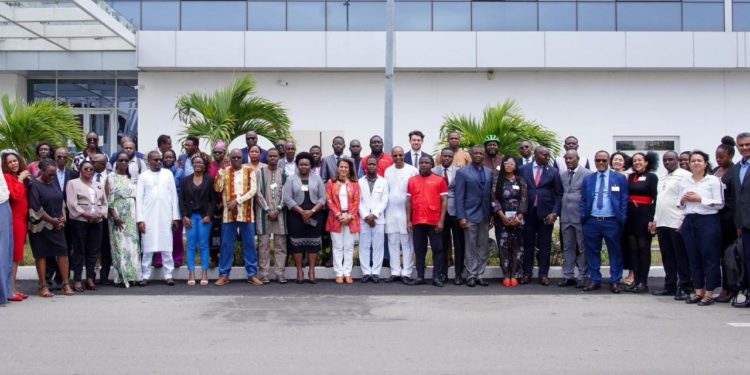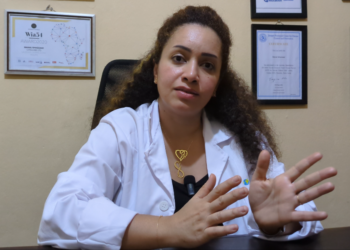By Kemo Cham
African countries have been urged to speak in one voice as they seek innovative solutions to the continent’s climate crisis.
African climate experts and activists meeting at the 12th edition of the Climate Change and Africa Conference (CCDA-XII) in Abidjan, Cote d’Ivoire, called for a unified position ahead of the United Nations Climate Change meeting later this year.
The United Nations Climate Change Conference of the Parties ((COP), is an annual event that offers a platform to discuss efforts to stabilise greenhouse gas concentrations in the atmosphere. This year’s edition – COP29 – is scheduled November in Baku, Azerbaijan.
CCDA is also convened annually, ahead of the COP, organized by a coalition of partnerships known as ClimDev-Africa, which includes the African Union Commission, the United Nations Economic Commission for Africa (ECA), and the African Development Bank (AfDB), in collaboration with the Pan African Climate Justice Alliance (PACJA) and other regional institutions.
As always, CCDA-XII offers an opportunity to assess the outcomes of the previous COP – COP 28 in Dubai, while giving the Africans a platform to deliberate on key actions, and strategies, with the goal of solidifying the continent’s position at COP 29.
CCDA-XII, which is running from August 31 to September 2, focuses on the critical issues of climate finance, green growth, climate justice, and regional cooperation. It brings together African leaders, policymakers, and experts to collaborate on strategies that will guide the continent towards a sustainable and resilient future.
The Abidjan meeting, convened on the theme: ‘Financing Climate Adaptation and Resilience in Africa,’ occurred alongside the African Ministerial Conference on the Environment (AMCEN).
Côte d’Ivoire’s Minister of Environment, Jacques Assahoré Konan, lamented that combating climate change is the greatest challenge humanity faced in the last century, citing the disproportionate impact on Africa, which he said was contributing less than 4% of global greenhouse gas emissions.
“Adaptation to these adverse effects is a major concern for Africa, and securing adequate financing is key,” he said.
Hanan Morsy, ECA Deputy Executive Secretary and Chief Economist, said despite the 2009 pledge of $100 billion annually, only a fraction of the estimated $1.3 trillion needed to support global climate resilience has been mobilized.
“The decline in global climate finance for adaptation, rather than the expected doubling by 2025, poses a serious threat to the Sustainable Development Goals (SDGs) and existing resilience investments,” she said, calling for innovative financing solutions that do not exacerbate Africa’s debt burden. She also suggested leveraging the African Continental Free Trade Area (AfCFTA) to channel investments into adaptation efforts and stressed the importance of developing strong public-private partnerships and engaging stakeholders at all levels to scale up adaptation investments.
Josefa Correia Sacko, Commissioner for Agriculture, Rural Development, Blue Economy, and Sustainable Environment at the African Union Commission, said Africa needs approximately USD3trillion for its member countries to fully implement their Nationally Determined Contributions (NDCs) by 2030. She however lamented that securing adequate financing for climate action remains a significant challenge.
“That is why we are gathered here today—to deliberate on key actions, and strategies, and to solidify Africa’s position as we assess the outcomes of COP 28 and chart our course forward for COP 29 in November this year in Baku, Azerbaijan,” he said.
“I urge all of us to speak with one collective voice as we prepare for COP 29. Our focus must be on mobilizing climate finance at scale for Africa, with a clear emphasis on securing grants rather than loans or debt. We must prioritize financing for impactful projects and ensure that carbon markets work in our favour,” she said.
Africa’s contributions to global mitigation efforts also calls for appropriate recognition and compensation, argues Antony Nyong, Director of Climate Change and Green Growth at the African Development Bank.
“Our priority must be fostering climate-resilient development while balancing adaptation with climate-informed investments. However, this can only be achieved with adequate financing, technology transfer, and capacity building, in accordance with the principle of common but differentiated responsibilities,” he stated.






















